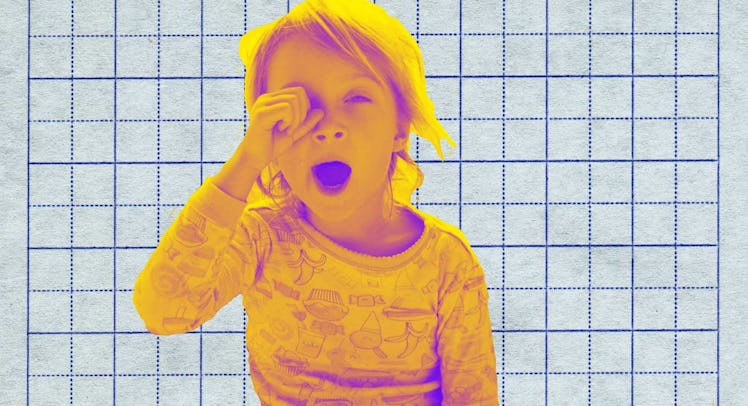Sleep Loss Costs Americans $400 Billion A Year And Parents Their Sanity
Sleepless nights cost the U.S. economy billions of dollars and parents have it worst.

You and your kids both need a good night’s sleep, which is unfortunate because parents and children are notoriously bad at catching adequate snoozes. The National Sleep Foundation recommends that adults get between seven and nine hours of sleep and that kids under the age of 13 get up to 11 hours of sleep. For many parents, this might as well be a recommendation to sprout wings and fly.
But that doesn’t mean it’s not worth fighting the noble fight for a few extra minutes or maybe — if fates align — an extra hour. Studies suggest that you’re a more dangerous driver when you’re sleepy, that even one extra hour of sleep would improve your child’s performance in school, and that a perpetually unrested workforce costs the United States economy billions of dollars each year. Here’s the pro-sleep data for those looking to make the case for the snooze button.
When You Snooze Behind The Wheel
Literally falling asleep at the wheel is a real risk when you’re overtired, but a more realistic and more common danger is experiencing microsleeps. Microsleeps are short episodes of loss of attention—a blank stare, your head snapping to attention, your eyes closing for a long moment — often experienced during a monotonous task, such as driving on the highway. One 2008 study examined how microsleeps affect driving within a safe environment, by asking sleep-deprived participants to take an hour-long spin in a driving simulator while an electroencephalogram (EEG) brain scan detected any microsleep episodes.
The shortest microsleep episodes lasted 3-4 seconds; the longer ones were in excess of 7 seconds. As microsleep length increased, tired drivers increasingly swerved out of their lanes (SDLP, or “standard deviation in lane position”), lost control of their steering wheels (SDSWA, or “standard deviation of steering wheel angle), and took longer to merge (TLC, or “time to lane crossing”). “The drivers showed significant deterioration in vehicle control during the microsleep episodes compared to driving performance…on equivalent segments of roadway,” the authors conclude. “Results indicate that driving performance deteriorates during microsleep episodes.”
When Your Kids Get One More Hour Of Shut-Eye
Even if you do manage to power through those microsleeps long enough to drop your kids off at school, studies suggest their exhaustion could be hurting their performance. One telling study published in 2003 found that even one extra hour of sleep could improve a child’s performance and that even one fewer hour of sleep could harm it. The study demonstrates that short-term verbal memory, attention span, and reaction time to physical stimuli all plummet when children lose an hour of sleep — and all significantly increase when children gain an extra hour of sleep.
When Your Insomnia Costs Your Country $411 Billion
But the lack of sleep in your home isn’t just hurting you and your kids — it’s hurting everyone else. A recent study by Rand Europe found that world economies lose billions of dollars through tired or absent employees, and that the U.S. is bearing the brunt of that impact. The study found that 1.2 million working days are lost thanks to sleepy Americans. The authors called on employers to build “nap rooms” at work (advice that we’re kind of glad everyone ignored). But the real solution is to clock out, put the kids down early, and get the right amount of sleep. Because you and your kids cannot afford to be tired. Neither can the U.S. economy.
This article was originally published on